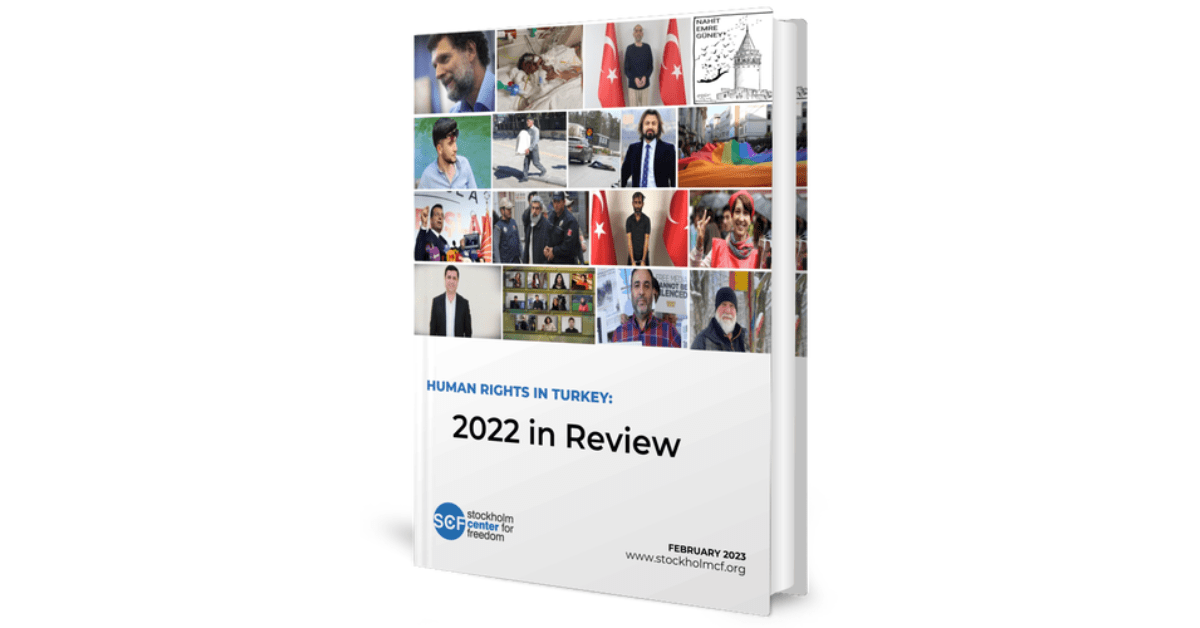This report highlights the most important developments in the area of human rights in Turkey during the year 2022. Authoritarianism continued to gain ground in Turkey throughout the year. With the aim of consolidating his power, President Recep Tayyip Erdoğan took further measures to undermine the fundamental pillars of Turkey’s already imperfect democracy. The enormous gulf between the country’s constitutional provisions for the protection of human rights and the grim reality on the ground continued to grow during the year. Several opposition groups came under intense pressure, and individuals linked to such groups were detained by the Turkish authorities.
Turkey was ranked 116th among 140 countries in the rule of law index published by the World Justice Project in October. The country ranked 135th in terms of constraints on government powers and 134th in terms of fundamental rights. Turkey was last in the Eastern Europe and Central Asia group, worse than Russia and Belarus. In the global ranking Turkey came after Angola and Mali and above Republic of the Congo and Iran.
According to 2022 statistics announced by Síofra O’Leary, president of the European Court of Human Rights (ECtHR), Turkey topped the list of countries with cases awaiting judgment with nearly 20,100 applications, corresponding to 26.9 percent of the total. It was followed by the Russian Federation, with around 16,750 applications; Ukraine (10,400); Romania (4,800); and Italy, with approximately 3,550 applications pending. Complaints to arrests, prosecutions and dismissals in the public sector following a coup attempt in July, 2016 made up half of the applications against Turkey.
According to Freedom House, Turkey remained “not free” with a score of 32/100 in 2022. The right group’s yearly report revealed that internet freedom continued to decline for the fourth year in a row in Turkey, and thousands of online users, including members of the political opposition, faced criminal charges for their social media activities during the period covered.
In its 2022 Report on Turkey, the European Commission, the executive branch of the European Union, said democratic backsliding continued, underlining serious deficiencies in the functioning of the country’s democratic institutions. The Turkish parliament continued to lack the necessary means to hold the government accountable during the reporting period, and Turkey’s constitutional architecture continued to centralize powers at the level of the presidency without ensuring a sound and effective separation of powers, the EU report stated.
Turkish courts continued to systematically accept bogus indictments, convicting without compelling evidence of criminal activity individuals and groups the Erdoğan government regards as political opponents. Among these were journalists, opposition politicians, activists and human rights defenders.
In October 2022 President Erdoğan approved a social media law that stipulates sanctions, including prison sentences of up to three years, for people who are found to have produced social media posts for the purpose of fake news and disinformation.
The Committee to Protect Journalists (CPJ) said Turkey saw a significant increase in the number of jailed journalists in 2022, with the government using the media legislation as an additional tool to prosecute journalists. The number of journalists jailed during the year rose from 18 to 40, with 25 Kurdish journalists arrested on terrorism charges. According to most recent World Press Freedom Index published by Reporters Without Borders (RSF), Turkey was ranked 149th out of 180 countries in 2022.
The Turkish government ramped up its crackdown on the Kurdish political movement in 2022 with a view to weakening the Peoples’ Democratic Party (HDP), and Turkey’s chief prosecutor in December asked the Constitutional Court to strip the party of government funding over its alleged links to an outlawed terrorist organization.
Thousands of people in Turkey came under investigation during the year, and most of them were under the threat of imprisonment over alleged insults of President Erdoğan and public officials. In December an İstanbul court sentenced Ekrem İmamoğlu, the mayor of İstanbul from the main opposition Republican People’s Party (CHP), to two years, seven months in prison and barred him from politics for allegedly insulting members of Turkey’s Supreme Board of Elections (YSK).
About Stockholm Center for Freedom
SCF is a non-profit advocacy organization that promotes the rule of law, democracy and human rights with a special focus on Turkey.
Committed to serving as a reference source by providing a broad perspective on rights violations in Turkey, SCF monitors daily developments, documents individual cases of the infringement of fundamental rights and publishes comprehensive reports on human rights issues.
SCF is a member of the Alliance Against Genocide, an international coalition working to exert pressure on the UN, regional organizations and national governments to act on early warning signs and take action to prevent genocide.
Source:Stockholm Center for Freedom (SCF)



